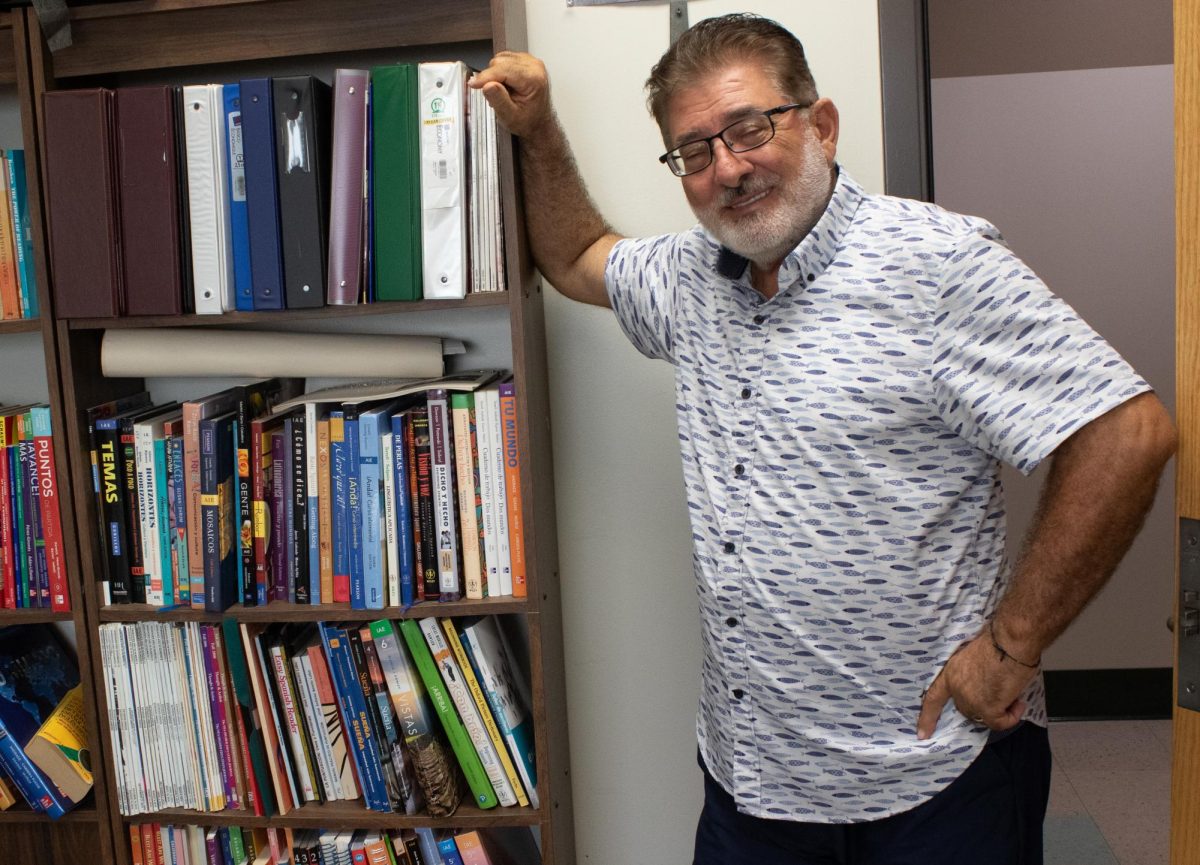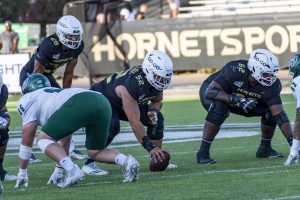Students will play role in recall election
September 24, 2003
Solomon Smartt has been following the news.
He knows the names, he knows the faces and he knows this is a big deal. And when the Sacramento State freshman votes for the first time on Oct. 7, he plans to be ready.
“I want to pick the right guy,” Smartt said, smiling.
Across the table from Smartt, freshman Amy Kaneyuki shakes her head. She’s not interested in voting next month.
“If they don’t like that guy, they’ll just have another recall,” Kaneyuki said.
The ideological break between Smartt and Kaneyuki isn’t anything new. Politicians and social scientists have known for years of the difficulty in motivating young people to the ballot box.
According to a 2002 study by the Center for Information and Research on Civic Learning and Engagement, only 38 percent of Americans aged 18-24 voted in the 2000 presidential elections.
In election years not including presidential races, CIRCLE said the same group’s voting participation has slipped below 20 percent.
And while a buzz persists about the record voter turnout predicted for next month’s historic recall election, pollsters are reluctant to assume college students will be among the surge expected in October.
At Sac State, some students have experienced trouble rallying their peers to vote.
“People I know say they can’t believe the recall is happening,” said student Erik Bryant, a senior.
Despite his own interest in politics, Bryant said his efforts to motivate more cynical or apathetic younger students have been largely unsuccessful.
“I try to get others to vote, but they say they don’t care,” he said.
Adrian Flores is among those friends and acquaintances whom Bryant has yet to persuade. Flores admitted he should vote in October, but said that he doesn’t have enough interest to get involved.
“I don’t think it has much of an impact,” Flores said. “There are other things in life I’m more focused on, like school and family.”
Young voter turnout has been relatively low since Congress ratified the 26th Amendment in 1971, lowering the voting age in the United States to 18 years old. In non-presidential elections since 1974, voting participation among 18- to 24-year-olds has never surpassed 28 percent.
But candidates who manage to push the youth vote have done well historically.
CIRCLE studies show a 6 percent jump nationally in youth voting in 1992, the year Bill Clinton took his campaign to MTV on the way to winning the presidency.
Since that time, national campaigns such as Rock the Vote and grassroots lobbying organizations like Party Y have sought to stir young peoples’ political consciences. Several Web sites, like that of Washington D.C.’s Youth Vote Coalition, invite visitors to register to vote online.
In California, some recall candidates are applying different measures in order to capture elusive youth votes. Independent candidate Arianna Huffington recently concluded a bus tour, speaking to students at colleges and universities throughout the state.
Recent UCLA graduate Jason Bow spearheads “Young Voters for Arnold,” a statewide network of young voters who support Republican candidate Arnold Schwarzenegger.
Bow, 22, estimated his organization’s Web site receives nearly 3,000 visits per day and said much of Schwarzenegger’s popularity stems from campaigning where young people can hear his message.
“Kids are turned off by career politicians,” Bow said. “You won’t find ‘Young Voters For (Gray) Davis’ or ‘Young Voters for Bustamante.'”
Back at Sac State, computer science student Alvin Anaya said he shares Bow’s enthusiasm for Schwarzenegger. Anaya, however, retains shades of the cynicism that tends to characterize this generation of voters.
“I’m glad Californians are taking advantage of the recall provision,” Anaya said. “Still, it’s all just political.”























































































































